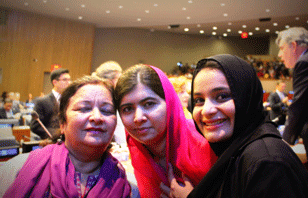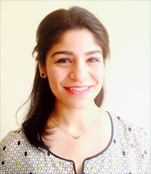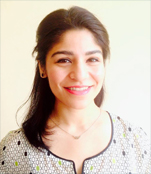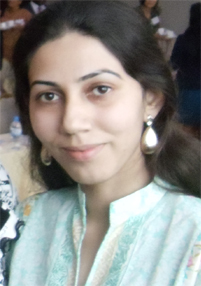As I head back from the bustling Big Apple to my quiet Cambridge abode, I find myself running in a slow playback of the happenings at the United Nations yesterday. Last week, while I was corresponding with my former boss, or rather my mentor, Baela Raza Jamil1, about her upcoming visit to attend the 70th session of the United Nations General Assembly (UNGA), I was planning my own call to the headquarters before I knew. She instantly connected me to the desks of the Global Education First Initiative (GEFI)2, an effort launched by The United Nations Secretary-General in September 2012, and got the ball rolling. At the upcoming session for UNGA, GEFI was holding a ‘high level’ event titled ‘#EducationFirst for Sustainable Development’, with guest speakers, no other than the Nobel Peace Prize Laureates, Malala Yousafzai and Kailash Satyarthi. The event was due to be attended by a stream of esteemed panelists, who I had been following on Twitter for a while now, and included the likes of Ban Soon-taek, Peng Liyuan, Irina Bokova and Gordon Brown.
As anxious and excited I was, Saturday morning arrived sooner than I expected. Following a long security check, I made it into the headquarters. It felt so surreal. I saw old and young men and women around, clad in formal attires, engaged in busy conversations, maybe discussing the Sustainable Development Goals (SDGs) that had been adopted yesterday, while the blue flag victoriously waved in the air. After spending a while outside, trying to take it all in, I entered the building. I confidently followed my way through the lobby to the conference rooms. I had reached well before time and realized all the rooms are occupied with ongoing sessions. I took advantage of the time and remembering my conversation with one of my new favorite professors at Harvard, Fernando Reimers3, I decided to check out Norman Rockwell’s iconic mosaic illustration, The Golden Rule that hung on the third floor of the building, as I was told. Having recently read Fernando’s article on HuffingtonPost4, I could see how the painting spoke for ‘The People’, coalescing different religions, ethnicities and races together for the common power of the shared ideology.
While I mused over that piece of art, I received a call from Baela, and I excitedly headed down the elevator to meet my mentor. Walking by her side, discussing the indicators for the upcoming Framework of Action for SDG. 4 (that she was working on), I naturally felt like one of the many world leaders around, gathered at the United Nations headquarters, ready to bring change for a better world for all. Whilst we walked towards Conference Room 4, we spoke to many prominent faces, as Baela introduced me and discussed different initiatives to address the Education 2030 Agenda.
We arrived at the hall and my eyes immediately got drawn to the panel, where Malala stood. Baela and I walked up to her, and greeted her with “Asalamoalaikum”-I barely exchanged a few sentences in Urdu, telling her how I come from the same country and have been working for the same cause as her that we were asked to take our seats. Despite how much more I yearned to talk to her, I wanted to seize the moment. I asked her if she would like to get a picture with us- the three women educators of Pakistan wrapped arms around each other and smiled for the camera, sharing an unsaid compassion.
We all took our seats as the panel set its place. The event was opened by Chernor Bah- Chairman of the Youth Advocacy Group for the Global Education First Initiative, a youth advocate for global education and also a former refugee from Sierra Leone. He introduced the Director General of UNESCO and also the Executive Secretary of GEFI Steering Committee, Irina Bokova. Bokova started with commending the efforts of the partners to realize its goals. She spoke about how the three objectives of the initiative- to expand access to education, improve the quality of learning, and foster global citizenship, form an integral part of the Sustainable Development Goal (SDG) 4. She effectively led way to the representation of the Secretary General, Ban ki moon, by his wife Ban Soon- taek, who reaffirmed how the unmet goals for education were the only way forward to development, advocating “If these children learn now they will help our world later”.
Soon-taek was followed by a special keynote address by the First Lady of China and UNESCO Special Envoy for the Advancement of Girls’ and Women’s Education, Peng Liyuan. Liyuan began her address with the story of her father as an educator and touched the hearts of many present there as she concluded how “It is important for girls to go to school because they will become their children’s first teacher someday”.
The President of the Republic of Korea, Park Geun-hye, spoke next. He focused more on the significance of the World Education Forum held in Incheon and pledged that his country his country would build on its outcomes. He emphasized on ICT-based learning environments in developing countries to address gender equality issues and to foster global citizenship.
Malala addressed afterwards, and I particularly made sure to record. She spoke at length about how she is uniting with the youth to call onto all the world leaders to help them advocate and achieve education as a human right, especially for girls in conflict who need it the most right now. She concluded with the tagline that resonated with many present there- “Education is hope, education is peace”.
Finally, the Special Envoy, Gordon Brown expressed his resolve to get every child into school, reiterating the efforts of the International Commission for the Financing of Global Education Opportunity- a commission recently launched by the Government of Norway and chaired by him to help build investments to finance the goals of the adopted SDG’s.
The next panel discussion underscored the role of game changers for sustainable development. It brought together the President of Croatia, Minister of Foreign Affairs of Australia, Minister of Foreign Affairs of Ethiopia, Minister of Foreign Affairs of Norway and Minister of Foreign Affairs of Tunisia. Each of them spoke about their political commitments for effective global partnerships, increased financing and relevant policy measures to ensure a successful transition from the MDGs to the SDGs to advance the Education 2030 Agenda.
Following that, speakers from different development organizations such as Global Partnership for Education, World Bank Group, UN Women, Global Campaign for Education, and Education International presented different approaches necessary to achieve the SDG. 4. The President of Education International, Susan Hopgood, closed the session with an interesting reflection on the role of teachers, stressing on how “tablets do not replace teachers”, for teachers are not merely implementers but “change agents”.
The event came to a close with a call to action from the Youth Advocacy Group, getting everyone to stand in solidarity and recite the chant “promise to progress”. Kailash Satyarthi, reinforced the role of youth towards achieving the Education 2030 agenda and closed the event.
While I was star-struck most of the day, I was uplifted to see such dedication and commitment from different leaders around the world, affirming that the world has come together for the world itself, infecting me more than ever…to internalize the emotions and give back -with an ideology based on a set of morals and values- selflessness and optimism- towards 2030-a brighter future for all.
(1) Advisor and Trustee for Idara-e-Taleem-o-Aagahi (ITA)/Center for Education and Consciousness
(2) Partners include UNDP, UNFPA, UNICEF, UN Women, UN Special Envoy for Global Education, World Bank, Global Partnership for Education, Educate A Child, Education International, Global Campaign for Education as well as philanthropic and business institutions. As the GEFI Secretariat, UNESCO provides overall support to the Initiative. – See more at:
(3) Ford Foundation Professor of the Practice of International Education at Harvard University
(4) 4 http://www.huffingtonpost.com/fernando-reimers/we-the-people-and-the-uni_b_8120294.html
Disclaimer: The views expressed here are those of the authors and do not necessarily represent the views of Idara-e-Taleem-o-Aagahi (ITA)





